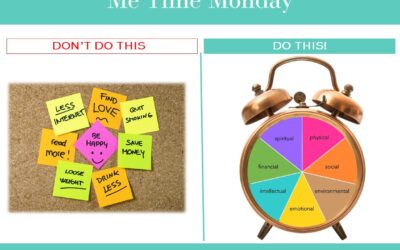 While some people will start the month by playing a funny joke on a friend or co-worker, the beginning of April, which marks National Stress Awareness Month, makes me think about the stress that plagues those who are caring for an older loved one. And, believe me, caregiver stress is no joking matter.
While some people will start the month by playing a funny joke on a friend or co-worker, the beginning of April, which marks National Stress Awareness Month, makes me think about the stress that plagues those who are caring for an older loved one. And, believe me, caregiver stress is no joking matter.
While stress is the No. 1 complaint when it comes to a caregiver’s own health and wellness, finding stress relief is just one more thing caregivers have to do. However, if you do not develop ways to become stress-free, it can seriously impact your ability to continue caring for your loved one.
Numerous studies point to the direct correlation between prolonged stress and health risks. Chronic stress can lead to higher blood pressure which can lead to hypertension which can ultimately lead to stroke or heart attack. In fact, a study conducted by the Commonwealth Fund found caregivers are twice as likely as the general population to develop chronic illness such as heart disease or cancer due to prolonged stress. In addition, the American Psychological Association in its annual Stress In America™ survey showed the negative health impacts from stress are more pronounced for those over age 50 who are also a family caregiver.
In addition, studies have found caregivers who experience stress turn to bad habits to cope. One study from the National Alliance for Caregiving found 10 percent of caregivers use alcohol or medications to cope with stress. Another survey, Stressed and Strapped: Caregivers in California conducted by the UCLA Center for Health Policy Research, found among the state’s six million caregivers, more than 16 percent were smoking and 27.5 percent are obese – at least four percentage points higher in each case than non-caregivers. For caregivers with serious emotional distress, the survey found the likelihood of smoking goes up by about 208 percent.
How Can Caregivers Find “Stress Relief?”
Start by taking a Caregiver Stress Test developed by the American Medical Association or the Alzheimer’s Association. Just by taking this test you may start to realize you are nearer to the breaking point than you thought. You can and should use this stress test to share with your doctor.
If you score off the charts, it is time to decompress before your engine blows. Here are five tips to help find stress relief:
 Find your “vault”
Find your “vault”
We all have a spouse, an adult child, a sibling, a best friend or spiritual advisor who can give you a shoulder to cry on or help get your mind off things for even a few minutes. I call these friends your “vault” because you know whatever you tell them will go in the vault and stay there. They will not judge you or share your feelings with others – it is a sacred conversation that truly remains confidential. Having a “vault” is a precious gift in our reality-TV obsessed world of “airing one’s dirty little secrets.”
 Join a support group of other caregivers
Join a support group of other caregivers
If you are frustrated, angry or depressed, it helps to let off steam or find comfort by talking to other caregivers who understand exactly what you are going through. Often, caregivers find talking to other caregivers who are going through similar challenges and anxieties can be empowering and nurturing. Sometimes other family members and friends can be sympathetic but not empathetic. It is important to find a support group specific to your situation – whether you are caring for someone with cancer, Alzheimer’s or in the case of our veterans, you may be a caregiver of someone with post-traumatic stress disorder or a physical disability – find the group where others in the circle or online truly understand.
One thing I have heard over and over again from caregivers is they feel they are all alone. The reality is you are not alone. By reaching out and voicing your fears, frustrations and anger in a safe environment with other caregivers – you will be amazed at how just talking can start to lift that weight off your shoulders.
 Try yoga, tai chi, or meditation
Try yoga, tai chi, or meditation
These relaxation activities are not just for the “new age” lovers – there are real health benefits to performing at least one of these activities just a few minutes a day. Yoga and tai chi can lower your blood pressure, improve your posture and circulation, relax your muscles, provide headache relief and boost your immune system. Even if you do not have time for yoga, just try calmly breathing for a few minutes. Everyone’s favorite physician, Dr. Oz advises lying on your back and taking 10 deep, long breaths a day – it will help take your mind on a journey to a happy place and helps removes toxins from your body. Learning how to relax is a true skill – one you have to practice every day.
 Do something to soothe you physically
Do something to soothe you physically
You will be amazed at how it calms your mind. A bath is great or if you do not have the time, just running your hands under warm water for a few minutes can truly relax you. You can also try giving yourself a massage – wrap your fingers around your upper arm and knead your fingers all around the arm working your way down to the forearm and wrist. Repeat on the other arm. AAAHHHH.
Seven to eight hours is recommended. Create a sleep-inducing environment: dark, quiet, comfortable and cool. Do not use your bedroom for anything other than sleep (sex is also OK according to the experts!). No watching TV, using your laptop or iPad or even reading in bed (this is my downfall). Make sure you do not eat at least two to three hours before bedtime and avoid caffeine or alcohol close to bedtime. Smoking can also cause you to have trouble sleeping. If you find you are tossing and turning at night and you cannot get those eyes closed, try drinking green or chamomile tea 1-2 hours before bed or put a lavender pillow near your head which aids relaxation. Establish consistent sleep and wake schedules, even on weekends.
Stress can be a caregiver’s biggest enemy. When you become a “stress-buster,” you will be on your way to finding balance that will bring you better health and wellness and you will find more energy and emotional stamina to continue to care for your loved one.





I needed to thank you for this good read!! I absolutely loved every little bit
of it. I have you bookmarked to look at new
things you post…
Thank you for your comment – we are now posting reader comments to our Caregiving Club Facebook page on Fridays – we call it “Friend Friday” – look for your comment to be posted on an upcoming Friday!
Hello! This is my first visit to your blog! We are a team of volunteers and starting
a new project in a community in the same niche.
Your blog provided us valuable information to work on. You have
done a marvellous job!
Thanks for the kudos and best of luck with your new group!
Sherri – CEO, Caregiving Club
It is no joke at all since the job needs physical and emotional strength